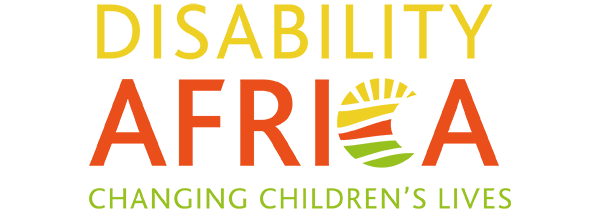“I thought my child was a devil”
This isn’t what you expect any parent to say of their own child. However, in many African communities, when the child in question is disabled, this is not unusual. We heard this particular statement from a father at our most recent Parent Support Meeting in Gunjur, The Gambia. But we have heard it before. And it matters – a lot – because it is these persistent and negative attitudes that isolate and disable people with impairments.
No parent wants to believe that their child is a devil and no parent wants to isolate their child. However, many parents are told by their friends in the local community that their child is a devil or possessed. The African Report on Children with Disabilities highlighted the negative attitudes that many people hold; it claims that many people believe that disabled people are possessed by demons, or that they possess supernatural powers, others believe disabled people are cursed, while some exclude disabled people in fear that their impairment is contagious.
The lack of understanding around disability prolongs and perpetuates the prejudiced attitudes that exist and these beliefs isolate the families of disabled people, as well as disabled people themselves. If everyone you trust tells you that there is something demonic about your child, and you have little or no factual information about their impairment, it isn’t hard to see how you start to believe them.
Inclusion
We know that with a little support, the lives of parents and their children can change drastically. The father who told us he thought his child, Fatou*, was a devil, was speaking at the meeting to say how the life of his daughter and his family had changed for the better. This was because they received simple support from Disability Africa staff:
“With your help and the help of God, Fatou can walk. Beforehand, she was carried everywhere. I thought she was a devil. You were the first to help and support us. When I look at her, I cannot believe it. Jingal and Amadou [Disability Africa staff] can motivate her to do anything!”
Our team in The Gambia visited the family frequently, played with, chatted to and supported the daughter. They spoke to the family, providing them with information and persuasive argument, “How is it possible for a human to give birth to anything other than a human?” As the child progressed, other family members re-evaluated their expectations of her – they recognised that her impairment prevented her from doing some things but she was able to do much more than they thought.
Something so simple changed the lives of a disabled young person and her family members. Our intervention couldn’t have been easier, but it’s a terrible shame that it took nearly 20 years for Fatou and her family to receive such support.
Through Inclusive Community Development, Disability Africa is leading the way in changing minds. While we are well aware that negative attitudes take generations to change, we are proud that our work is making such a difference. In comparison to the size of the problems faced by millions of disabled people across Africa, our resources are very small. As such, we have developed a template that we believe can be replicated across Africa, spreading our impact and our message to everyone who needs to hear it. The Gunjur Inclusion Project in The Gambia is our foundation project but we have already started to expand - our plan is to be in five African countries within three years.
We know that in some developing countries, governments can remain distant and ineffective at meeting the direct needs of people in their communities. In African societies, this lack of government support is largely and effectively countered by a culture of mutual support in which the community ‘rallies round’ in times of need. That is unless the person in need is disabled.
Exclusion
Previously, we wrote a blog about a disabled young person, Elizabeth*, who was left starving to death in her own home. Once again, it was Elizabeth and her family that were isolated by their local community, who insisted on saying negative things about her because she had an impairment; her mum was even told to “get rid of that one!”
After 18 lonely years, Elizabeth’s mother gave up and stopped feeding her. When we met her, we found her in an advanced state of malnutrition. She was taken to hospital but despite our best efforts, it was too little, too late for Elizabeth.
She died because she was excluded from the local community and because her family were not given the support they needed.
It is the way that people think that has the most disabling impact on others and it can have fatal consequences.
A simple intervention, such as the one in Fatou’s case, can lead to a profound, positive change in the lives of disabled young people and their families. Inclusion benefits everyone and saves lives - we cannot overstate the urgency in changing the way that non-disabled people think and act.
Addressing the inequalities that exist for disabled young people, and encouraging inclusion improves all who take part.
*Names changed
